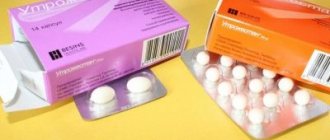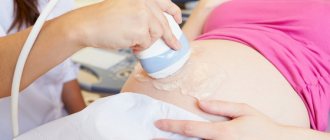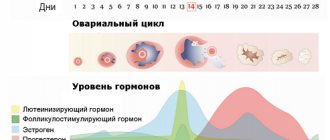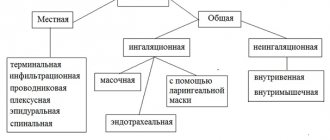Pregnancy is an exciting event for every woman. It’s very good if it happens as planned, when the couple anxiously awaits the coveted two stripes. Gynecologists recommend starting to prepare for this in advance. If a woman is taking oral contraceptives, they should be discontinued at least six months before the expected conception. Today we will look at the onset of pregnancy after “Jess”.
Description and principle of action of the drug
Hormonal products "Jess" and "Jess Plus" are round tablets that differ in color and composition depending on the day of administration. The package also contains a calendar insert and stickers for keeping track of it. The composition and color of contraceptives are shown in the table.
| Tablet type | Characteristic | A drug | |
| "Jess" | "Jess Plus" | ||
| Active hormonal | Amount in a package | 24 pcs | |
| Color | Light pink | ||
| Active ingredient | drospirenone (3.00 mg), ethinyl estradiol (0.02 mg) | ||
| Auxiliary inactive | Amount in a package | 4 things | |
| Color | Pale orange | ||
| Active ingredient | None (placebo) | Levomefolate calcium (0.451 mg) | |
After consumption, the active components of the tablets are quickly absorbed and penetrate into the general bloodstream. The maximum concentration of hormonal substances in plasma is achieved in approximately 2 hours. The drug is excreted in the form of metabolites in urine and feces within several days after completion of administration.
Contraceptives have the following effects on the body:
- They suppress the onset of ovulation by blocking the synthesis of luteinizing (LH) and follicle-stimulating (FSH) hormones by the anterior pituitary gland.
- They repeatedly increase the thickness of cervical mucus, creating an impenetrable barrier to the movement of sperm.
- They change the structure of the endometrium, preventing possible implantation.
How long before you can get pregnant after taking hormonal pills?
Regardless of what drug the woman took, pregnancy after hormones can occur at different times. This criterion directly depends on the patient’s age, her state of health, as well as on the duration of taking hormonal contraceptives. Fertility of a nulliparous woman aged no more than 25 years is usually restored 2-3 months after discontinuation of the tablet.
In patients aged 30-35 years, this process may take at least 1 year. At the age of over 35 years, fertility can be restored only 2-3 years after stopping the tablets. In this process, a significant role is played by the state of the woman’s hormonal background, as well as the ratio of sex hormones in the body.
Is it possible to get pregnant right away?
There is a possibility of getting pregnant quickly after stopping birth control pills. The annotation for hormonal drugs indicates that some women have the opportunity to become pregnant during the next ovarian-menstrual cycle after discontinuation of the drug. If the patient does not have acute or chronic diseases of the genitourinary system, and her hormonal levels are satisfactory, then you can count on successful conception already 2-3 weeks after the end of the course.
Is it possible to get pregnant after long-term use?
Long-term use of hormonal drugs significantly affects the process and timing of restoration of female fertility. A woman will be able to get pregnant after taking birth control pills for a long time only 1-2 years after stopping taking the contraceptive. Taking into account the individual characteristics of each woman’s body, there are often situations when patients become pregnant several months after completing the course of hormone therapy.
Advantages of the drug
Due to the improved formula, in addition to effective protection against unplanned pregnancy, the product has a beneficial effect on the female body:
- normalizes the menstrual cycle;
- eliminates painful manifestations of premenstrual syndrome;
- has an antiandrogenic effect, helping to get rid of many manifestations of increased synthesis of male sex hormones (seborrhea, acne and other dermatological problems).
Unlike similar COCs, “Jess” contains one and a half times less ethinyl estradiol, due to which it does not contribute to the formation of edema, the development of mastopathy and uncontrolled weight gain.
Due to the content of calcium levomefolate, Jess Plus fully satisfies the body's need for folates involved in the process of hematopoiesis.
This is important when planning a subsequent pregnancy, since the substance significantly reduces the risk of fetal development disorders and premature birth.
Conception
Since the main task of the drug is considered to be to prevent conception, many are inclined to think that the corresponding drugs will not facilitate fertilization. Correctly prescribed medication does not adversely affect ovarian function. On the contrary, after the so-called “vacation” the organs regain strength and begin to carry out their work more intensively .
Important: At the stage of planning a baby with irregular periods, gynecologists advise drinking Jess for three months. Pregnancy after stopping Jess proceeds without any complications.
Against the background of termination of adoption, special measures are not required for the purpose of fertilizing the egg. It is enough for the expectant mother to follow the recommendations of the attending physician.
Mode of application
One package of contraceptive must be used for 28 days, one unit of the drug per day. The tablet is swallowed without chewing and washed down with clean boiled water at the same time, strictly observing identical time intervals. Eating food or liquids does not affect the absorption of active ingredients.
You should start with the first hormonal tablet and drink all units of the drug strictly in order, despite the same concentration of drospirenone and ethinyl estradiol. This avoids problems and confusion if an appointment is missed. Lastly, take auxiliary tablets (vitaminized or placebo). A new pack must be started the day after the previous one is completed, without interruption.
It is recommended to drink “Jess” and “Jess Plus” from the first day of the menstrual cycle. A delay up to the fifth day inclusive is allowed, but in this case it is necessary to use additional barrier contraceptives during the first week.
If you miss one or more active tablets, you should drink the missed units of the drug at the first opportunity, and use the rest of the pack strictly according to the instructions. If the delay is less than 24 hours, the protective effect of COCs is not reduced, otherwise it is necessary to use additional contraceptives for a week. Skipping placebos does not affect the patient's blood levels of hormones, so taking them can be ignored.
Jess plus: is it possible to get pregnant after taking birth control pills?
Gynecologists prescribe the drug in cases where a woman has unstable or painful menstruation, or an insufficient amount of female sex hormones, which contribute to the maturation of the female gonads. In addition to contraception, there are the following indications for use:
- amenorrhea of varying degrees;
- lack of ovulation;
- age 45+;
- beginning menopause;
- acne;
- chest pain associated with menstruation;
- fertilization planning.
Taking Jess does not affect a woman's subsequent fertility. If before the prescription of the drug there was infertility due to an unstable cycle, irregular ovulation, then you can “play” on the rebound effect and conceive the long-awaited baby.
Contraindications
Contraceptives "Jess" and "Jess Plus" are contraindicated in the following cases:
- intolerance to the active and auxiliary substances of the drug;
- pregnancy and breastfeeding;
- predisposition to the formation of blood clots;
- endocrine disorders, diabetes mellitus;
- tumors of any etiology;
- severe pathologies of the urinary system, liver, gastrointestinal tract;
- high blood pressure;
- uterine bleeding of unknown nature.
Caution should be used when using COCs in certain acute and chronic diseases, while taking medications, including antibiotics. The drug is prescribed by a doctor based on the existing clinical picture and the individual characteristics of the patient. While using birth control pills, you must undergo a routine medical examination by a gynecologist every 6 months.
What to do if you become pregnant while taking the drug
Conception that occurs while taking oral contraceptives is not a reason to panic. Many years of experience of doctors and statistics say that the negative outcome of this pregnancy does not exceed the percentage of the usual average conception. And thousands of toddlers born in this way are clear confirmation of this. The fact that you are taking OCs should not in any way affect the decision to preserve or get rid of pregnancy. In this case, gynecologists observe expectant mothers who conceive a baby while taking oral contraceptives as a normal pregnancy.
At the moment, there have been no recorded cases in which a woman taking OCs gave birth to a defective baby as a result. So, if conception has already occurred, then there is no need to panic about possible abnormalities of the child. This factor in itself is unfavorable for the expectant mother, so they are not allowed to be nervous about their status. In women's minds, another myth has spread regarding pregnancy and the simultaneous use of OCs. Allegedly, in this process there is a chance of conceiving twins. But, unfortunately, there is no recorded evidence that could confirm this. Or this rumor has been confused with the situation with IVF, because with it the likelihood of multiple pregnancies is really very high.
If, while taking OCs, a woman experiences any symptoms of pregnancy, then appropriate tests should be done to confirm or refute its presence. It’s better to go to the clinic and get tested for hCG. If the result is positive, then all that is necessary is to stop taking OK and do everything that is done during a normal pregnancy: register with a doctor, undergo tests, attend ultrasound examinations and prepare for future motherhood, imagining what color the children's room will be and what to name the future baby. The main thing is not to be nervous and spend more time in the fresh air, and then all fears and worries will dissipate by themselves.
Side effects
The most common side effects of hormonal drugs "Jess" and "Jess Plus" include:
- feeling of depression, depression, insomnia;
- dizziness, increased blood pressure;
- pain, heaviness and discomfort in the mammary glands;
- nausea, loss of appetite, less often vomiting and intestinal upset;
- exacerbation of existing inflammatory and infectious pathologies of the pelvic organs;
- absent or too heavy menstrual-like bleeding.
If you have at least one of the listed disorders or a deterioration in your general health while taking COCs, you should consult your doctor.
Side effects of the contraceptive
Like any hormonal OC, Jess Plus can provoke a negative reaction from the body. Side effects of the tablets appear as:
- Manifestations of individual allergies
- Pain in the chest, lower abdomen
- Nausea, vomiting
- Uterine bleeding
- Hormonal imbalance
- Thromboembolic events
- Depression of psycho-emotional state
- Hypertension
- Liver disorders.
If, after taking the first pill or during the course, unwanted symptoms appear that were not there before, you should report them to your gynecologist. There may be several reasons: the body responds in this way to the effects of synthetic hormones, and it needs time to adapt and rebuild. Or the drug is not suitable, in which case it will need to be replaced.
But usually, deterioration in well-being may be due to a restructuring of the reproductive system. The period of getting used to Jess Plus takes a couple of months. After the body adapts to the new conditions, the unwanted symptoms will disappear. If, after adaptation is completed, the tablets continue to cause a negative reaction, the doctor will stop them and, if necessary, prescribe another OC.
Pregnancy after drug withdrawal
Many women are concerned about the question of how long they can take “Jess” without harm to reproductive function and health. According to the latest medical research, in the absence of contraindications, you can take pills without fear before the onset of menopause.
Most experts recommend taking a break from taking oral contraceptives only during pregnancy and lactation.
The vast majority of women using COCs plan to have a child in the future. Let's consider how to properly cancel a hormonal drug, and how pregnancy will proceed after long-term suppression of ovarian function.
Is pregnancy possible while taking the drug?
Many people are interested in another, no less important question: can pregnancy occur while taking OCs, and if this happens, is it necessary to terminate it? If you follow all the doctor’s prescriptions and instructions, then this is practically impossible and this probability does not exceed 1%. And to prevent this from happening, you should use a drug such as “Jess” at the same time without skipping. When about four hours have passed after taking the pill and the woman has vomiting or severe diarrhea, it is better to play it safe and take an extra one.
Pregnancy can occur when no additional precautions are used during the first week of taking OCs. Also, less effective protection is present in incorrectly selected OCs. For example, a woman, without consulting a doctor, mistakenly purchased an oral contraceptive for nursing mothers, therefore, their protection will be less, since they contain a smaller dose of hormones.
Pharmacological agents that reduce the effectiveness of the drug
There is a list of pharmacological and even folk remedies that also reduce the effectiveness of oral contraceptives after they are taken simultaneously. These drugs include antibiotics (rifampicin, erythromycin, ampicillin, tetracycline), barbiturates (phenobarbital, thiopental), anticonvulsants (phenytoin) and St. John's wort from the traditional method of treatment.
The above drugs significantly reduce the absorption of OCs in the intestines or accelerate their breakdown in the liver several times. This factor is the most important reason for the decrease in the effectiveness of OK. Therefore, if there is a need to take any medications simultaneously with oral contraceptives, you should immediately inform your doctor. There is a possibility that during the course of treatment, a woman will have to resort to other methods of contraception in order to avoid pregnancy while taking OCs.
Alcohol as a factor reducing the effectiveness of Jess
Do not forget about such a component as alcohol, which also accelerates the breakdown of oral contraceptives in the patient’s liver. So large doses of alcohol can “neutralize” OCs and speed up the process of ovulation.
Pregnancy that occurs while taking OCs is a reason for bad thoughts and anxiety in women who are worried about the health of the unborn baby and the course of pregnancy. Such a state of anxiety can even cause thoughts about terminating such a pregnancy, but doctors recommend taking a deep breath and calming down.
Rules for canceling COCs
In order for planned drug withdrawal to be painless, you must first consult with a specialist to clarify all possible risks and contraindications. When planning a pregnancy, it is not allowed to stop taking the pills in the following cases:
- Anemia (insufficient level of hemoglobin in the blood). This condition provokes an increase in the volume of blood lost during menstruation, and also increases the risk of intermenstrual bleeding. If conception occurs against the background of anemia, the likelihood of miscarriage, gestosis, premature birth and other pathologies of pregnancy and fetal development increases significantly. In addition, in 75-90% of cases, anemia of varying severity is diagnosed in young children whose mothers suffered from insufficient hemoglobin production during pregnancy.
- Exacerbation of chronic genital infectious and inflammatory diseases. The abolition of hormonal contraceptives in this case leads to a sharp decrease in the thickness of the cervical secretion, which facilitates the penetration of pathogenic microflora from the vagina into the uterine cavity. This contributes to the development of severe complications, including infertility, and also increases the risk of spontaneous abortion in the event of possible conception after o.
COCs should be discontinued only after all existing health problems have been completely eliminated. Despite the fact that Jess Plus allows you to stop taking pills on any day of the cycle, gynecologists advise using the entire package of the drug. This is especially true for patients who used hormonal drugs not only for contraception, but also for the treatment of certain endocrine pathologies.
Illiterate or abrupt withdrawal of the drug can lead to the development of complications:
- breakthrough uterine bleeding;
- dysfunction of the ovaries, pain in the lower abdomen, disruptions of the menstrual cycle of various types (amenorrhea, scanty or heavy blood loss during menstrual periods, increased premenstrual syndrome);
- psychoemotional disorders, irritability, sleep disorders;
- nausea, vomiting, diarrhea, weight loss;
- headaches, high blood pressure, deterioration in general health.
Despite the possible risks, emergency discontinuation of the drug is allowed if surgical intervention is necessary or if conditions develop that are incompatible with the use of birth control pills.
Most often, even when correctly stopping birth control pills as a result of hormonal changes, many women complain of malaise and deterioration in general well-being. Unpleasant symptoms disappear without a trace without medical intervention within a few days.
Problems that arise after stopping birth control pills
One of the most common questions regarding pregnancy is how to quickly get pregnant after taking such medications. The solution mostly depends on what drugs you used (for example, Jess, Yarina, Regulon). However, you will be able to get pregnant quickly if your ovulation is completely restored quickly enough.
So, when taking birth control pills (Yarina, Jess, Regulon), it should be noted that generally ovulation begins to recover almost immediately after taking birth control pills, so in this case this function can be reconfigured already after 2 months after stopping taking the pills Jess, Regulon or Yarina.
After all, this is the introduction of an artificial hormone, an analogue of progesterone. It delays ovulation and liquefies the surface of the uterus for sperm to enter. By the way, the level of the synthetic hormone when injected increases over three weeks and reaches its highest level. And after stopping the drug, it begins to decrease. This continues for up to 200 days, until the hormone completely leaves the blood.
Thus, the menstrual cycle can return to normal for almost a year, but within two years it will be difficult to get pregnant.
Another method is the IUD (coil), a small plastic device that the doctor inserts through the cervix into the uterus. This is a very “long-lasting” method - it prevents pregnancy for five years. The IUD releases a synthetic hormone similar to progesterone into the uterus.
As a result, the cervix becomes thick and does not allow sperm to reach the egg. The IUD can prevent ovulation, but often it simply blocks the sperm from reaching the egg.
Concomitant use of Jess with the following medications is not recommended:
- Preparations containing St. John's wort;
- Barbiturates;
- Phenytoin;
- Felbamate;
- Griseofulvin;
- Topiramate;
- Oxcarbazepine;
- Rifampicin;
- Carbamazepine;
- Primidone;
- Penicillin antibiotics;
- Tetracyclines.
Restoration of reproductive functions
The rehabilitation period after finishing taking Jess and similar drugs usually takes 3 months. When the intake of drospirenone and ethinyl estradiol into the body stops, the gonadotropic function of the pituitary gland immediately resumes. Despite the length of time that the ovaries are dormant, the likelihood of conception during this period is very high. Gynecologists often use this phenomenon in the treatment of infertility or difficulties with fertilization. However, in the absence of special indications, experts recommend refraining from planning pregnancy during the entire recovery period, which includes the following stages:
- Normalization of all phases of the menstrual cycle, resumption of ovulation.
- Increasing the endometrial layer of the required thickness in order to compensate for the atrophy of the mucous membrane of the uterine cavity that developed while taking COCs.
- Restoration of the natural microflora of the vagina and the composition of the cervical secretion.
During the entire rehabilitation period, women planning a pregnancy are recommended to visit a gynecologist and other specialists, take all necessary tests, and also take a course of folic acid. At this time, it is necessary to protect yourself with barrier contraceptives.
As a rule, in the absence of health problems, full ovulation occurs 2-4 months after o and “Jess Plus”. The same time is required for the restoration of menstruation (the first two or three cycles may be irregular). Starting from this period, you can plan a pregnancy.
Planning a pregnancy
When a couple becomes ready for pregnancy, it is necessary to properly discontinue Jess Plus. It depends on the intended use. If it was prescribed for the treatment of menstrual irregularities with use for 4 months, then you just need to abandon it and start conceiving.
When the drug is used only as a contraceptive, and for quite a long time, then after discontinuation you need to refrain from conceiving for another 3 months. During this time, the menstrual cycle and the productivity of female hormones should be restored.
Onset of pregnancy
Pregnancy after o or “Jess” is possible already in the next cycle after ovulation resumes. The duration of the rehabilitation period may increase in women over 30 years of age, with long-term use of contraceptives or with certain health problems. In most cases, conception occurs within 1 year after stopping birth control. If fertilization does not occur during this time, you need to seek help from a specialist.
Modern COCs are safe and cannot in themselves lead to infertility. The causes of difficulties with conception are various hormonal and other disorders and diseases in one or both partners. In this case, treatment or additional stimulation is required.
Pregnancy after Jess Plus and its analogues does not have any special features: birth control pills do not affect the well-being of the expectant mother and the development of the fetus. However, as a result of sudden hormonal changes, the likelihood of conceiving twins or triplets increases. The risk of multiple pregnancy is greatest in the first 2-3 cycles after stopping COC use.
Things to remember
Before you start taking them, it is important to consult a gynecologist. These are not vitamins, but a serious drug that affects the functioning of the reproductive system. If you are over 40 and are happy with the number of children, your concerns become a little less. But for young girls who have yet to become mothers, it is very important to receive comprehensive answers to their questions.
Pregnancy after “Jess” is possible and usually occurs quite quickly, but you still need to keep the following points in mind:
- As a result of the influence of hormonal drugs, the intensity of contraction of the fallopian tubes is significantly reduced. Multiply this by 5 or 10 years of contraceptive use and conception can be delayed indefinitely.
- OKs affect the structure of the endometrium. If you have taken them before, you know that your periods become very scanty. Sometimes panty liners are enough to keep your laundry clean. But this advantage also has a downside. Pregnancy after “Jess” may not occur precisely because the thickness of the nutrient layer in the uterus (endometrium) is very small. The egg simply cannot implant into it. The detachment of the endometrium marks the end of the cycle and the beginning of menstruation. It may take a long time for the body to fully recover.
- Regular use of OCs changes the vaginal microflora. As a result, the likelihood of active sperm entering the uterus is reduced.
This does not mean that this method of contraception is unjustified. It has a high degree of reliability and is also comfortable for most women. Another thing is that before taking a certain drug it is important to undergo examination. If your doctor prescribes OK without prescribing tests, then it is better to change your specialist.
Pregnancy while taking birth control pills
Many patients are concerned about the question of whether it is possible to get pregnant while taking Jess. The risk of conception while using hormonal contraceptives is very small, but still exists. Most often this happens in the following cases:
- incorrectly selected drug, dosage or violation of the rules of administration;
- skipping a pill, especially for more than 24 hours;
- diarrhea or vomiting within 3-4 hours after using COCs;
- simultaneous use of alcohol, other medications, herbs or dietary supplements.
It should be remembered that while using COCs, the sensitivity of rapid pregnancy tests may decrease, so if you have any suspicions, you should consult a doctor. If the fact of fertilization is confirmed, it is necessary to immediately stop taking birth control pills, although at present there is no reliable evidence of their negative effect on the child.
Rebaud effect
No matter how contradictory it may sound, gynecologists often prescribe this type of contraception specifically for pregnancy, in cases where it is difficult for a couple to do it on their own. It is known that after stopping hormonal contraceptives, the likelihood of conceiving a child often increases. Obstetricians and gynecologists use this feature when treating infertility in couples. This phenomenon is called the cancellation effect or rebound effect.
To help a woman get pregnant, the doctor prescribes taking hormonal pills for 2–4 months or several courses with intervals of 2 months if there was no ovulation. This restores the regularity of the cycle, which increases the likelihood of conception after stopping the pills.
But many girls are tormented by questions about the safety of this type of contraception for their body, about the effect of the pills on the development of the child if conception occurs immediately after stopping taking them.
Taking "Jess" after childbirth
Contraceptive pills are allowed to be used starting from 21-28 days after the birth of the child. It is advisable to use condoms for the first 7 days. Jess should not be used after childbirth if a woman plans to breastfeed. The components of the drug not only penetrate into the baby’s body with mother’s milk, but also significantly worsen its taste and nutritional characteristics, and also reduce lactation.
Read
Also:
- When is the best time to plan a pregnancy after taking birth control?
- The drug Jess Plus - instructions for use, how to stop taking birth control pills
- Postinor - how to terminate an early pregnancy, side effects, consequences
- Hormone Drospirenone in various medications
The effect of Jess Plus on the fetus
If a woman did not plan motherhood, but became pregnant while taking Jess Plus, then it is quite natural to worry about how the pills will affect the development of the baby. Moreover, the instructions for the drug say that taking OK during pregnancy is undesirable.
In fact, Jess Plus is one of the safest hormonal contraceptives, as it contains substances in low concentrations: 20 mcg ethinyl estradiol and 3 mg drospirenone. As clinical experiments on animals have shown, in such quantities they do not have a detrimental effect on the fetus. But since the human body has not been fully studied, for the safety of the child, Jess Plus tablets are not recommended for pregnant women.
Instructions for use
Jess is available in two versions: 21 and 28 tablets per package. Hormones are contained in only 21 tablets. What are 7 extra tablets for? They help a woman maintain a certain interval between different courses. In the case of the 21-tablet option, a woman can start a new course a little earlier or later. As a result, the hormonal balance is disrupted and the contraceptive does not work as effectively.
When should you start taking Jess? Examples of different situations and start times of the course:
- in the standard case, the first tablet is taken on the first day of menstruation, which corresponds to the beginning of the cycle;
- after birth, the start of treatment should be on days 28-30;
- when switching from a mini-pill to Jess, you can start taking it any day without having to wait between the two drugs;
- when using contraception using an intrauterine device, the tablet is taken on the day of removal of the IUD;
- with the injection method, the first tablet should be taken on the day of the next injection;
- If you have an abortion or miscarriage in the 1st trimester, the contraceptive should be taken immediately.
If a woman forgot to take Jess on time and remembered it on the same day, then the pill should be taken immediately. If the next day has already arrived, then the contraceptive is taken at the usual time. It is strictly forbidden to take two tablets at the same time.
What to do if the dosage regimen has been violated?
The development of events if a COC Jess pill was missed may be as follows:
- If you miss the white pill, there is no reason to worry, since it is an inactive “placebo” pill. We throw away the missed pill and continue to take birth control according to the scheme.
- If you missed a pink pill, and no more than 12 hours have passed since the missed pill, then take the contraceptive as quickly as possible. The contraceptive effect still remains. If more than 12 hours have passed since the missed date, there is a risk of conception. Next, we look at which pill was missed: 1-14 - we drink the missed pill, even if we have to take 2 - the evening one and today's one, and during the week we use condoms during intimacy. 15-24 – there are 2 possible options: we take the missed pill and then continue taking the COC according to the scheme. After 24 pills, throw away all the white ones and immediately start taking the active pills. Additional contraception is not necessary. The second option is to throw away the existing package and start taking a new one on the 5th day of the menstrual cycle. Additional contraception is not necessary
How does the drug affect pregnancy?
The components contained in Jess birth control pills do not tend to accumulate in the body. They are broken down by liver enzymes into simpler substances and excreted in urine and stool. This means that when the contraceptive stops entering the body, the woman resumes ovulation, which can recover quite quickly. Proof of this are pregnancies that occur after one pill is not taken on time.
By stopping Jess, a woman can become pregnant in the next menstrual cycle. Before stopping the drug and conceiving, it is advisable to undergo a preventive examination with a gynecologist and make sure that everything is in order and you can become pregnant without fear of complications. It is not recommended to discontinue the drug for the purpose of conception if a woman has:
- infectious damage to the organs of the reproductive or genitourinary systems of any etiology;
- acute inflammatory processes;
- general somatic diseases that may complicate a future pregnancy;
- recent surgical interventions on the abdominal and pelvic organs;
- the need for chemotherapy or radiotherapy in the near future.
Is pregnancy possible while taking the drug? Most of these cases are associated with irregular use of the contraceptive or with conditions that cause its accelerated disintegration or evacuation from the body.
How does taking Jess affect subsequent pregnancies? The components contained in the contraceptive are not harmful to the embryo. It has been noticed that after stopping the pills for some time, the likelihood that the pregnancy will be multiple is increased.
Features of the contraceptive
Jess Plus is a monophasic two-component OC, designed for a 28-day course.
The contraceptive effect is provided by two synthetic hormones, identical in structure to substances produced by the body itself - ethinyl estradiol and drospirenone. After penetration, they promote many biochemical processes, as a result of which ovulation is suppressed, the production of the endometrium is significantly slowed down, which makes it impossible for the fertilized egg to attach.
In addition to protection against pregnancy, Jess Plus is prescribed to women to correct disorders of the reproductive system. The tablets are prescribed to women suffering from irregular menstrual cycles, severe PMS, and heavy bleeding. After a course of synthetic hormones, the functioning of the reproductive and nervous systems is normalized, and the condition of the skin and hair improves.
The composition of Jess Plus is enriched with a vitamin-like compound - calcium levomefolate. The substance has more pronounced properties than folic acid and is much more active. For this reason, it is better and more completely absorbed in the body. Jess Plus is especially recommended for women who are deficient in the vitamin.
The advantage of Jess Plus over other similar OCs is that the vitamin substance is included in the active tablets and placebo. Therefore, a woman, along with protection against pregnancy, receives an additional portion of vitamins.
KOC: pros and cons
Many doctors prescribe contraceptives not only to exclude pregnancy, but also to eliminate some problems associated with the functioning of the reproductive system:
- normalization of hormonal levels;
- prevention of inflammatory diseases of the female genital area;
- reducing the risk of developing tumors and oncological diseases of the uterus and appendages;
- active fight against acne, improving the condition of the skin and hair, reducing the risk of developing osteoporosis.
But at the same time, there are also disadvantages to taking oral contraceptives:
- long courses of COCs can lead to hormonal imbalance;
- oral contraceptives can cause thrombosis;
- during menopause – COCs increase the risk of developing breast cancer.
However, it all depends on the correct selection of the contraceptive. If the drug is suitable, then the risk of side effects is extremely small.
How to stop drinking OK
Taking the hormonal OK Jess will provide protection against unnecessary conception only if the intake is followed correctly. The drug is a set of 28 tablets: 24 active (pink) and 4 pale orange placebos.
The pills must be taken every day at the same time, since the drug does not accumulate in the body, and only with regular use will the required concentration be maintained in the blood.
The tablets should be taken whole, without chewing or biting, with a small amount of water. They take the pink pills first, and after finishing, they immediately start taking the placebo. During this period, menstrual-like bleeding should occur. Such periods after discontinuation of Jess Plus can be in the form of normal menstruation or spotting.
As soon as all the orange pills are gone, they start taking pink pills again, without allowing any breaks and without waiting for the end of “menstruation”.
To make it easier to control the intake of OK, you need to be guided by the calendar indicator on the blister. In addition, there is also a block of stickers with printed days of the week, which are pasted into a special album after taking the contraceptive.
Abruptly stopping the use of OCs is allowed only in case of emergency, when the symptoms that appear pose a serious threat to health or due to pregnancy. In other situations, it is recommended to complete the course and stop taking the contraceptive after finishing the placebo.
Otherwise, spontaneous withdrawal of Jess Plus during the course may provoke a violent reaction in the body. A sharp resumption of the production of endogenous substances will cause a hormonal imbalance, which, in turn, will affect the nature of the menstrual cycle and greatly increase the risk of unplanned conception.
If the reason for refusing Jess Plus is the desire to get pregnant, then it is recommended to start using it after the MC is adjusted and normal periods begin.
The normal action of Jess Plus is possible not only with the correct prescription, compliance with the conditions of administration, but also with proper cancellation. This approach will completely eliminate or minimize the unpleasant consequences of using hormonal OCs.










